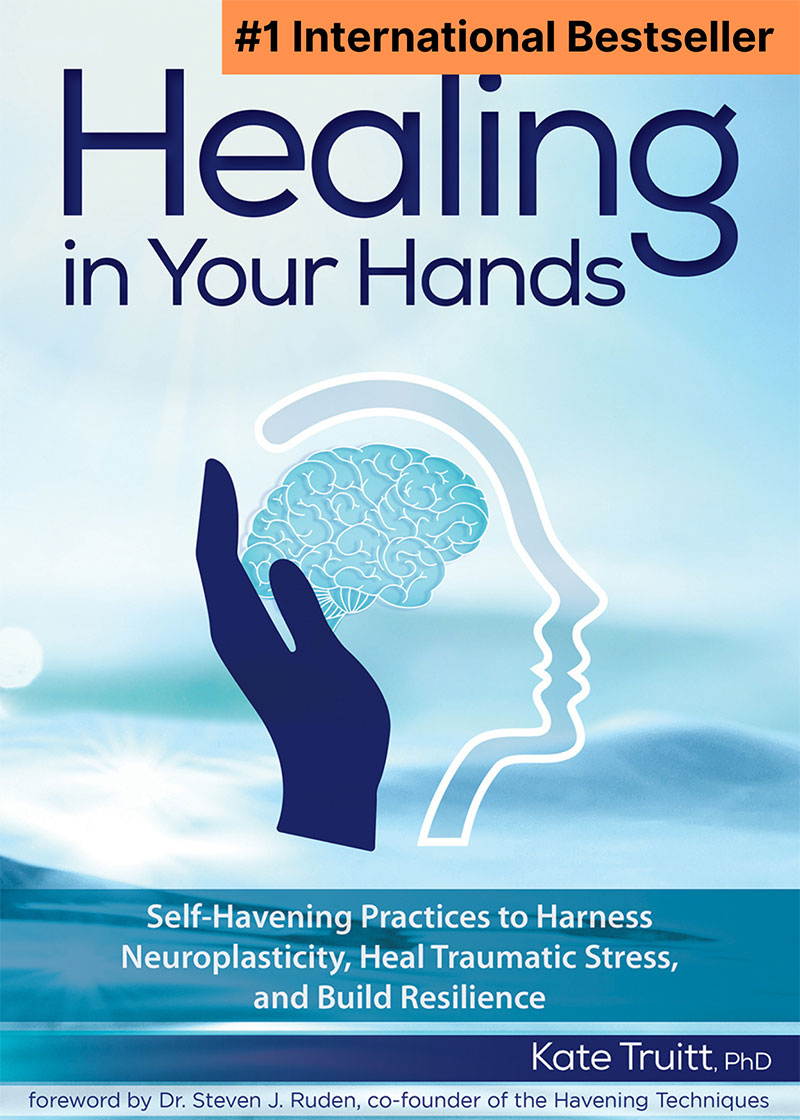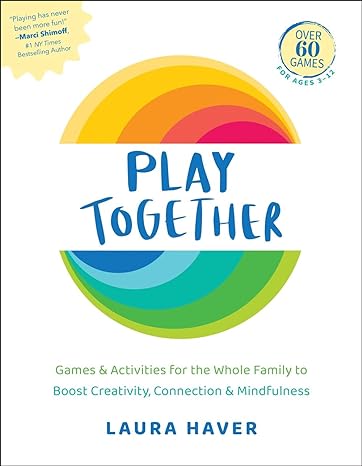Parenting with Resilience: Building Strong Families Through Self-Care and Growth
By Dr. Kate Truitt
Parenting is a journey filled with joy, love, and an abundance of responsibilities. Amid the hustle and bustle of daily life, it’s easy for parents to place their own needs on the back burner, prioritizing the well-being of their children above all else. However, to truly be the best parent you can be, it’s crucial to prioritize self-care. When parents take care of themselves, they are better equipped to handle the challenges of parenting, foster a positive environment, and model healthy behaviors for their children.
The Importance of Self-Care for Parents
Self-care is not a luxury; it’s a necessity. It involves taking time to nurture your physical, emotional, and mental well-being. Engaging in self-care can lead to improved mood, reduced stress, and a greater sense of overall well-being. For parents, this translates to more patience, enhanced resilience, and the ability to maintain a positive outlook even during challenging times.
Research shows that parents who practice regular self-care are less likely to experience burnout and are more capable of providing a supportive and nurturing environment for their children. Self-care helps parents recharge, ensuring they have the energy and emotional capacity to meet the demands of parenting. This is one of the reasons why I dedicated a special chapter in my book Healing in Your Hands: Self-Havening Practices to Harness Neuroplasticity, Heal Traumatic Stress, and Build Resilience about Resilient Parenting: Being Your Best Self for Them (and You).

Practical Self-Care Tips and Routines for Parents
Incorporating self-care into your daily routine doesn’t have to be complicated or time-consuming. Here are some practical tips and routines that parents can easily integrate into their lives:
- Prioritize Sleep: Ensure you get enough rest. Lack of sleep can exacerbate stress and reduce your ability to cope with daily challenges. Create a calming bedtime routine and aim for 7-8 hours of sleep each night.
- Healthy Eating: Nourish your body with balanced, nutritious meals. Preparing meals in advance can save time and ensure you have healthy options readily available.
- Physical Activity: Engage in regular exercise, whether it’s a brisk walk, yoga, or a workout session. Physical activity releases endorphins, which can boost your mood and reduce stress.
- Mindfulness and Relaxation: Practice mindfulness techniques such as meditation, deep breathing exercises, or even short periods of quiet reflection. These practices can help you stay grounded and manage stress more effectively. In this guided meditation for reducing tension and enhancing calm, you can learn how to move into a relationship with your body to deepen your felt sense of safety and enhance calm and tranquility.
- Hobbies and Interests: Make time for activities you enjoy. Whether it’s reading, gardening, or crafting, engaging in hobbies can provide a much-needed mental break and bring joy into your daily routine.
- Social Connections: Maintain strong social connections with friends and family. Having a support system can provide emotional support, advice, and a sense of community.
- Professional Support: Don’t hesitate to seek professional help if you’re feeling overwhelmed. Therapists and counselors can provide valuable tools and strategies to manage stress and improve mental health.
The Role of Play in Resilient Parenting
Play is often seen as the domain of children, a time for them to laugh, explore, and enjoy their youth. However, play is much more than mere entertainment. It is a crucial component of child development, family bonding, and building resilience. For parents, understanding and incorporating play into the family routine can create a nurturing environment that fosters growth, connection, and joy.

Through play, children learn to solve problems, develop fine and gross motor skills, and explore their creativity. It also helps them understand social norms and build relationships with peers and family members. Play stimulates brain development and improves cognitive functions such as memory, attention, and decision-making. Activities like puzzles, building blocks, and imaginative play encourage children to think critically and creatively.
Play provides a safe space for children to express their emotions, navigate social interactions, and develop empathy. They learn to share, negotiate, and resolve conflicts, which are essential skills for healthy relationships. Engaging in playful activities together creates shared experiences and memories, enhancing family cohesion and communication. It allows parents to enter their child’s world, understand their perspectives, and build trust and intimacy.
Incorporating play into your family’s routine doesn’t have to be complicated. Here are some ideas to get you started:
- Family Game Night: Dedicate one night a week to playing board games or card games. This can be a fun way to bond and foster friendly competition.
- Outdoor Adventures: Spend time outdoors with activities like hiking, biking, or playing sports. Nature offers endless opportunities for exploration and physical activity.
- Creative Play: Encourage artistic activities such as drawing, painting, or crafting. Set up a family art station with supplies for everyone to enjoy.
- Storytelling: Create stories together, whether through books, oral storytelling, or puppet shows. This enhances language skills and ignites imagination.
- Dance Parties: Turn on some music and have a family dance party. It’s a great way to let loose, exercise, and have fun together.
- Cooking Together: Involve your children in cooking meals. It’s a playful way to teach them about nutrition, math (measuring ingredients), and the joy of preparing food.
- Unstructured Play: Allow time for unstructured, free play where children can use their imagination and create their own games. This fosters independence and creativity.
I also encourage you to check out Laura Haver’s book: Play Together: Games and Activities for the Whole Family to Boost Creativity, Connection & Mindfulness. She invited me to partner with her in a chapter creating a series of Havening Techniques games using the havening touch based on the Healing in Your Hands Programs. It was a delightful experience to weave in the essence of self-havening alongside her brilliant ideas.

And if you want to introduce the Havening Techniques with your children, I encourage you to check out my Healing in Your Hands with Self-Havening: Resources for Children, Adolescents, & Teens playlist on YouTube. This is for you if you are seeking effective and compassionate resources to support the emotional well-being of your children. For those of you who are not yet familiar with the Havening Techniques, we have an on-demand FREE introductory course to the Havening Techniques available online.
On Resilient Parenting
As parents, your instinct often drives you to protect your children from failure, to shield them from the discomfort and disappointment that comes with it. However, failure is not only an inevitable part of life but also an essential component of building resilience and fostering growth. Embracing failure as a valuable learning experience can significantly enhance your child’s ability to navigate life’s challenges with confidence and adaptability.
Parents need to be resilient when it comes to failure for several crucial reasons:
1. Modeling Healthy Coping Mechanisms
Children learn a great deal by observing their parents. When parents demonstrate resilience in the face of failure, they show their children that setbacks are a natural part of life and can be managed constructively. This teaches children to view challenges as opportunities for growth rather than insurmountable obstacles.
If you want to learn more about building a resilient brain through healthy coping mechanisms, I encourage you to watch this psychoeducational video on YouTube.
2. Fostering a Growth Mindset
Resilient parents can help their children develop a growth mindset, which is the belief that abilities and intelligence can be developed through effort and learning. This mindset encourages children to embrace challenges, persist in the face of setbacks, and see effort as a path to mastery. By showing resilience, parents instill the values of perseverance and continuous improvement in their children.
3. Creating a Safe Space and Supportive Environment
Resilient parents create a home environment where failure is not feared but seen as a learning experience. This kind of environment encourages children to take risks and explore new things without the fear of harsh judgment or punishment for mistakes. As highlighted in “Healing in Your Hands,” creating a sense of safety is crucial for neurobiological healing and overall mental health . I talk about this further in this short clip . And if you’re a mental health professional or clinician, you might want to check out our on-demand course on Resilient Parenting: Cultivating Calm and Compassion for the Highs, the Lows, and Everything in Between.
4. Building Emotional Regulation Skills
Resilience in parents helps them manage their emotions better, which in turn helps children learn to regulate their own emotions. When parents handle failures calmly and thoughtfully, they teach children how to respond to disappointments and stressors in a balanced and healthy way. Emotional regulation is a cornerstone of resilience and is crucial for navigating life’s ups and downs effectively.
5. Maintaining Mental Health and Well-being
Parental resilience contributes to better mental health and well-being, which is vital for the entire family’s functioning. Parents who can bounce back from setbacks are less likely to experience prolonged periods of stress, anxiety, or depression. This positive mental health state enables them to be more present, patient, and supportive of their children.
6. Enhancing Problem-Solving Skills
When parents approach failures with resilience, they engage in problem-solving rather than succumbing to defeat. This proactive approach demonstrates to children that problems can be resolved through critical thinking and perseverance. It helps children develop confidence in their own problem-solving abilities, knowing they have seen their parents navigate difficulties successfully.
7. Encouraging Independence and Confidence
Children of resilient parents often grow up to be more independent and confident. They learn that failure is not a reflection of their worth but a step in the learning process. This perspective encourages them to take initiative and pursue their goals without undue fear of failure.

8. Supporting Long-Term Success
Resilience in parents sets the foundation for long-term success for their children. By teaching and modeling resilience, parents equip their children with the tools they need to handle future challenges in academics, relationships, and their professional lives. Resilient individuals are more likely to achieve their goals and maintain a positive outlook on life, regardless of the obstacles they encounter.
Resilient parents provide a powerful example for their children, helping them develop the resilience they need to thrive in an ever-changing and often challenging world. By embracing failures as learning opportunities and maintaining a positive, proactive approach to life’s difficulties, parents can significantly influence their children’s ability to succeed and find happiness.
References:
- Informed Families. (2023, July 21). Embracing self-care in the family: Nourishing the roots to strengthen the tree. Informed Families. Retrieved from https://www.informedfamilies.org/catalyst/embracing-self-care-in-the-family
- Sutton, J. (2019, January 3). What is resilience and why is it important to bounce back? PositivePsychology.com. Retrieved from https://positivepsychology.com/what-is-resilience/
- FasterCapital. (n.d.). Family resilience and adaptability: Building strong families – Lessons for entrepreneurial success. FasterCapital. Retrieved from https://fastercapital.com/content/Family-Resilience-and-Adaptability-Building-Strong-Families–Lessons-for-Entrepreneurial-Success.html
- Mileo, P. (2023, December 1). How can parents contribute to the development of life skills that positively affect their child’s behavior? Satchel Pulse. Retrieved from https://blog.teamsatchel.com/pulse/how-can-parents-contribute-to-the-development-of-life-skills-that-positively-affect-their-childs-behavior




















